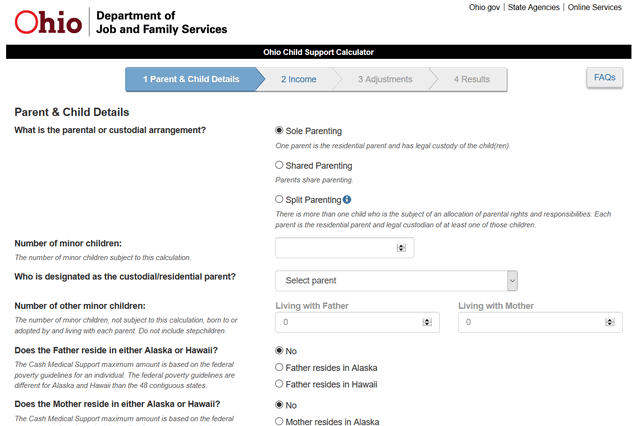Parenting classes are general courses in which parents or parents-to-be enroll so that they can learn basic effective parenting skills, maintain meaningful relationships with their children, and drive child-rearing to its ultimate goal.
According to this research, the main goals of parenting classes are to assist parents who are struggling with the parenting journey and to help parents focus on possible ways to nurture and love their children according to their personalities and capabilities. Parenting classes are useful for everyone because parenting strategies keep changing and advancing with each passing generation.
Parenting classes are also for couples who anticipate becoming parents in the near future. Children whose parents are divorcing also participate in parenting classes in order to help them cope with and adjust to their situation. Attendance, however, is only voluntary.
Cost of Parenting Classes
Generally, parenting classes are taught by trained and certified personnel, and the courses award certificates of completion. Parenting classes can be taken on-site in an actual classroom or online, depending on the students’ availability. Most opt for online classes because they are convenient, have flexible schedules, and can be completed at the student’s own pace. Prices vary depending on the type and duration of the class, but the price range is almost the same on most platforms.
How Long Does a Parenting Class Take?
The amount of time it takes to complete a class depends on two factors: 1) the type of class the student is taking and 2) the duration of the class. There are several divisions of parenting classes, as outlined below.
- Four-hour classes. Students are allowed to log in any time within twenty-four hours at their own convenience and take lessons for up to four hours. The course lasts up to a month, and tests can be retaken if need be. The cost of this class is $29.95.
- Five to eight-hour classes. For only $39.95, students get access for up to eight hours a day from the comfort of their own homes, and they can take parenting classes for up to a month. Tests and certifications are awarded.
- Nine to twelve-hour lessons. This option costs only $49.95. Students are allowed to take classes for up to twelve hours a day on any day of the week around the clock, and they are at liberty to ask for a time extension.
- Co-parenting classes. These classes cost only $29.95 and are specifically for parents who are separating or divorcing. Classes can be taken with a co-parent to learn how to adjust to custody and visitation of children. Students can access the notes all day, every day for up to a month.
- Teen online classes. These classes are for teens and children whose parents are going through a separation or divorce. They help teens understand divorce and separation and prepare them to live in two homes. Students can enroll for only $29.95 and be at liberty to take lessons for up to a month in the privacy of their own homes.
Each person is awarded a certificate upon completion for a cost of $10.00. The certificate can be stamped and signed for an extra small fee if need be. As mentioned previously, the amount of time required to complete a class depends on the duration and type of class. All in all, studies say that parenting classes are useful for all parents and help improve parenting strategies overall.
Parenting Classes Pros and Cons
The impact of parenting classes and their importance in child-rearing is mostly based on personal experience and varies from person to person. But generally, here are the highlights and drawbacks of parenting classes.
Highlights
- Parental support. Parenting can be stressful at times. Parenting classes will teach parents ways to manage stress as well as bring together people who are going through similar situations.
- Child knowledge. Not all children are the same. Parenting classes will show parents how to effectively handle each child based on his or her personality in order to help children become their best selves.
- Stay updated. Parenting, like most other spheres, evolves from generation to generation. Parenting classes will inform parents about the latest parenting research and studies.
- Fundamental approaches. Parenting classes will help parents (especially first-time parents) learn the basic concepts of parenting. Child-rearing can be discouraging for a parent who has no idea how to go about it. Parenting classes will provide some necessary preparation.
- Parenting confidence. The whole idea of parenting is based on confidence and consistency so that parents gain the trust and respect of their children, and these concepts are taught in parenting classes.
Setbacks
Some parents find parenting classes a waste of time, money, and energy because they teach general societal approaches as opposed to focusing on real-time cases. Other parents feel shy or judged, especially when they have to speak about their children and the strategies they use when asking for advice. Furthermore, some parents find the classes boring and repetitive instead of helpful. Not all the methods taught in these classes will be applicable to everyone; some methods may need adjustment depending on the situation.
Conclusion
Parenting is one of the toughest jobs, and sometimes it can wear people out. However, parenting classes guide both parents and children through the entire process. Parents should consider taking the classes if they need help. As experts say in this study, parenting is a process and can be approached differently as long as the goal is achieved.
References
McVittie, Jody, and Al M. Best. “The Impact of Adlerian-Based Parenting Classes on Self-Reported Parental Behavior.” Journal of Individual Psychology 65, no. 3 (2009). Retrieved from http://ss1.spletnik.si
Gillies, V. “Parenting, Class and Culture: Exploring the Context of Childrearing.” Community Practitioner: The Journal of the Community Practitioners’ & Health Visitors’ Association 79, no. 4 (2006): 114. Retrieved from http://europepmc.org
Chang, Mido, Boyoung Park, and Sunha Kim. “Parenting Classes, Parenting Behavior, and Child Cognitive Development in Early Head Start: A Longitudinal Model.” School Community Journal 19, no. 1 (2009). Retrieved from https://eric.ed.gov/?id=EJ847434













